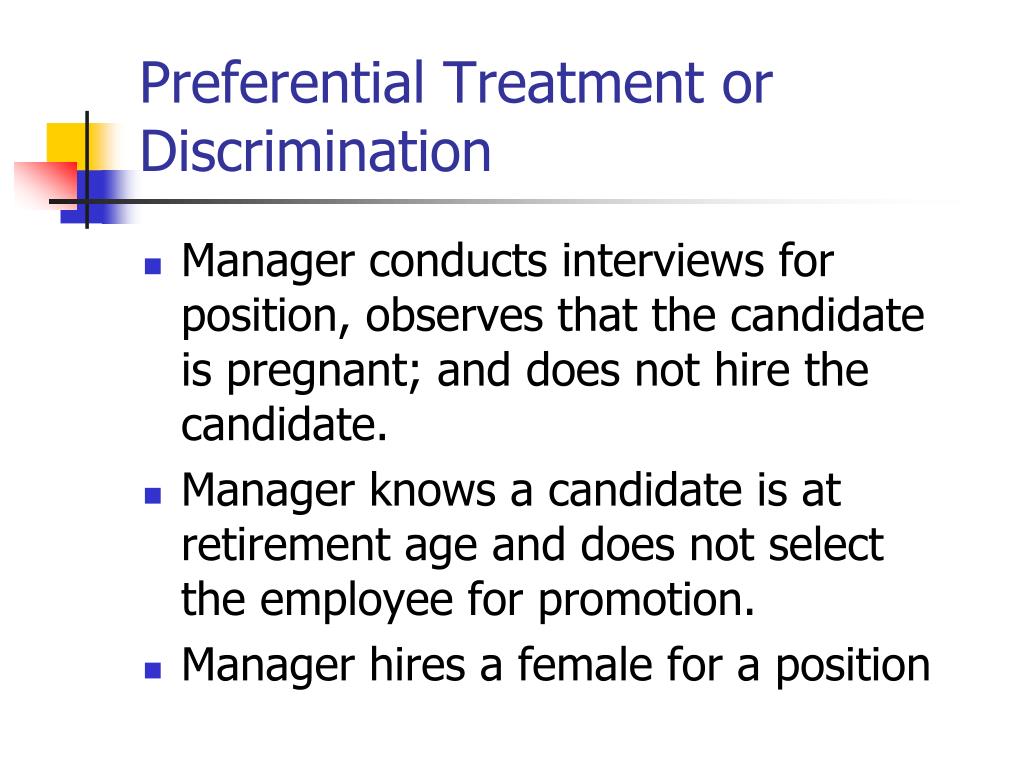

Gives certain employees more frequent and timely feedback.Gives certain employees performance evaluations that they do not deserve.Assists certain employees with career development and not others.Assigns desired tasks to certain employees.Favors certain employees when making decisions or recommendations regarding promotions or pay.Gives certain employees more praise for accomplishments that others do not get praised for.Gives certain employees additional help and coaching during the completion of assignments.Favors certain employees in the allocation of limited resources over others (ex.Favors certain employees in the allocation of workload (it can either be more over time or lighter workload).Lets it pass or uses their formal authority to cover up certain employees' mistakes.Has an open door policy only for certain employees.Spends more time talking with certain employees about work-related topics (ex.Spends more time having informal interactions with certain employees (ex.Some of the signs listed are outright examples of favoritism, while others may be more subtle displays of favoritism that, over time, create a problem among leaders and employees. The following is an extensive list of examples of favoritism in the workplace, as found in a research study from Central Michigan University. In other words, some people are practicing favoritism and not even fooling themselves that it's a good idea. This is especially interesting since 83 percent say this sort of unfairness leads to worse decisions in promoting people. 75 percent of the survey respondents say they have witnessed favoritism, while 23 percent admit they practice favoritism.Once the review process is over, the predetermined favorite gets the promotion a stunning 96 percent of the time, even though 94 percent of respondents said their company has procedures in place to prevent favoritism in promotions and four out of five respondents said their companies have a formal process in place for choosing who gets promoted.56 percent of bosses already have a 'favorite' in mind for a promotion before the formal review process begins.Here are some of their findings, specifically related to promotions: In a study conducted by researchers from Penn Schoen Berland and Georgetown University of senior executives at companies with at least 1,000 employees, it was found that favoritism is alive and well, in big and small ways. Unfortunately, the reality is not all leaders have heeded this warning.

So, while it’s human nature to have favorites, as leaders it’s of the utmost importance you actively reject any actions or behaviors that are or can be seen as favoritism. These can cause us to naturally favor those with similar interests and backgrounds.” In the workplace though, favoritism is dangerous, toxic, and in some cases, illegal.Īs an Enquiron article noted, “All people possess implicit biases, which wire our brain to categorize people and things subconsciously even when we actively try to reject prejudices. There is little to no harm in having a favorite book, favorite flavor of ice cream, or a favorite place to work.


 0 kommentar(er)
0 kommentar(er)
